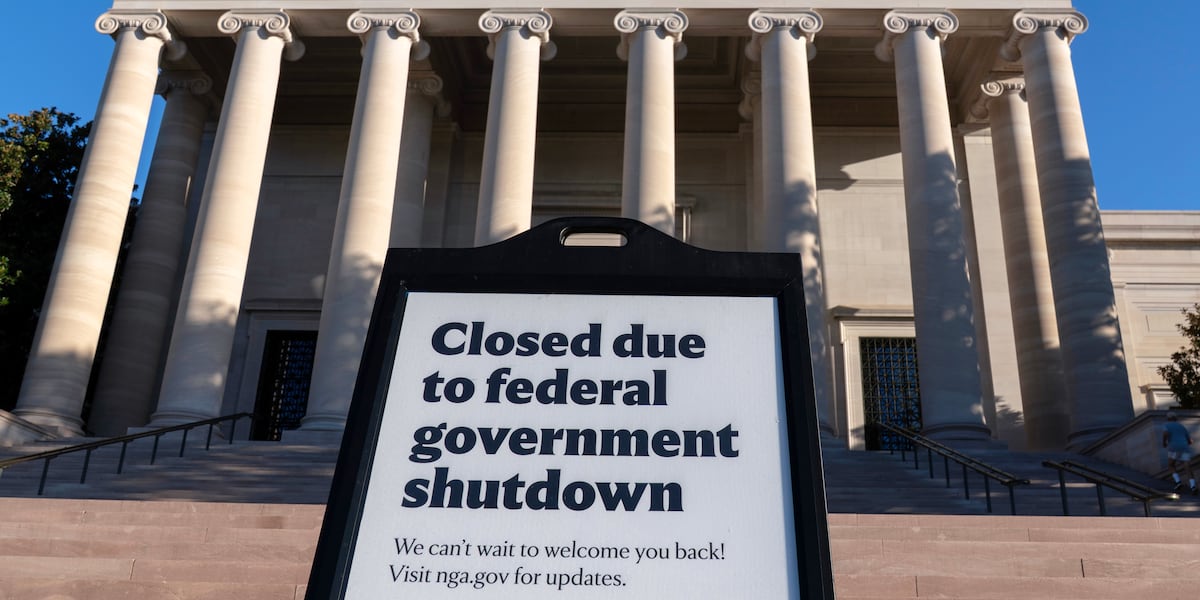In a move that could shift the dynamics of the ongoing government shutdown, President Donald Trump expressed on Monday his willingness to negotiate with Democrats over health care subsidies, which have become a pivotal issue in the current deadlock. While Trump’s comments shed some light of hope during the shutdown’s sixth day, he simultaneously echoed concerns raised by conservative factions about wasted spending, suggesting a cautious approach to any deal regarding the subsidies associated with the Affordable Care Act, commonly known as Obamacare.
Trump remarked, “We have a negotiation going on right now with the Democrats that could lead to very good things. And I’m talking about good things with regard to health care.”
Despite this glimmer of potential progress, discussions between the two parties have been scarce since the shutdown began. Democrats have urged Trump to actively engage in negotiations, emphasizing that any resolution requires his endorsement. Both Senate Majority Leader Chuck Schumer and House Minority Leader Hakeem Jeffries pointed out that no genuine negotiations have occurred, with Jeffries stating that the White House has “gone radio silent” following a meeting last week.
“Trump’s claim isn’t true, but if he’s finally ready to work with Democrats, we’ll be at the table,” Schumer asserted.
Negotiations appear to be stalling as funding for the federal government continues to be a contentious point. Senate Majority Leader John Thune informed reporters that there might be a pathway to resolving the matter around ACA subsidies, although he noted the final decision would rest with the White House.
In the meantime, the Senate was set to vote on funding measures deemed likely to fail, as both parties engage in a game of pressure to end the impasse. Thune criticized the Democrats, indicating that a critical food aid program for women, infants, and children was running low on funds, and stated, “now it’s the American people who are suffering the consequences.”
Meanwhile, Schumer emphasized the need for cooperation in order to resolve not only the shutdown but also the ongoing health care crisis affecting millions of Americans, remarking, “It takes two sides to have a negotiation.”
On the other hand, political tensions mounted as House Speaker Mike Johnson expressed frustration, declaring, “there’s nothing for us to negotiate,” while Jeffries called for immediate action to address health care issues.
With the House not in session this week, discussions have shifted focus to the Senate. Despite the absence of House lawmakers, bipartisan leadership continues to conduct daily briefings to articulate their stances and assign blame regarding the shutdown.
Democrats are advocating for the renewal of the subsidies, which serve to aid millions with health insurance costs, whereas Republicans maintain that this debate should be deferred until after a funding agreement is reached for temporary government operations.
Jeffries highlighted the urgency of the situation, stating in an NBC interview that notifications have already gone out to individuals enrolled in health insurance exchanges indicating significant premium increases for the next year. “That’s what people are facing right now, which is why we need to address it,” he emphasized.
The stalemate occurs amidst a backdrop of economic unease. Though the U.S. economy has continued to grow, employment rates have dipped, and inflation remains high. Conflicts arising from Trump’s import taxes have disrupted businesses, contributing to wavering confidence in his leadership. Additionally, the nearly $2 trillion budget deficit has raised alarms regarding fiscal sustainability. The Trump administration is in a unique position, viewing the shutdown as an opportunity to exert influence over budget decisions. Officials have suggested that the furloughs of government workers could be a method to implement significant job cuts, a strategy that has not been employed previously.
Initially implying that layoffs were already underway, White House Press Secretary Karoline Leavitt clarified that Trump’s remarks pertained to furloughs, which allow workers to return to their jobs and be compensated retroactively after the shutdown. However, she did indicate that layoffs would become inevitable if the shutdown extends further.
This discussion surrounding potential layoffs has only heightened the tension between lawmakers, complicating efforts to reach a compromise and rebuild trust. As both parties attempt to sway public opinion in their favor, the pressure mounts for a resolution to the ongoing government shutdown.
Contributing to this report were Associated Press writers Joey Cappelletti, Mary Clare Jalonick, and Lisa Mascaro.






